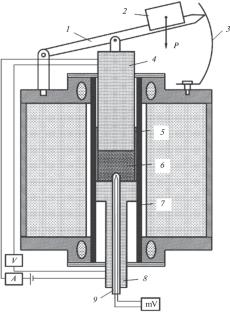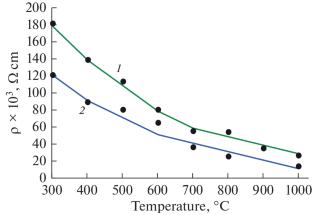固体碳基还原剂的电阻率比较
IF 0.5
Q4 ENGINEERING, CHEMICAL
引用次数: 0
摘要
比较了以下固体碳基还原剂的电阻率:木炭、石油焦、rexil特种焦、KhMI特种焦(卡拉干达阿比舍夫化学和冶金研究所研制)和高炉焦。目的是更好地了解电炉加热中影响碳基还原剂性能的因素。在用于电炉生产技术级硅的温度(~1600℃)下,由长火焰Shubarkol煤生产的rexil具有最大的电阻率。本文章由计算机程序翻译,如有差异,请以英文原文为准。


Comparison of the Electrical Resistivity of Solid Carbon-Based Reducing Agents
The electrical resistivity of the following solid carbon-based reducing agents is compared: charcoal, petroleum coke, rexil special coke, KhMI special coke (developed at Abishev Chemical and Metallurgical Institute, Karaganda), and blast furnace coke. The goal is to better understand the factors affecting the performance of carbon-based reducing agents in electrofurnace heating. At the temperature used in electrofurnace production of technical-grade silicon (~1600°C), rexil produced from long-flame Shubarkol coal has the greatest electrical resistivity.
求助全文
通过发布文献求助,成功后即可免费获取论文全文。
去求助
来源期刊

Coke and Chemistry
ENGINEERING, CHEMICAL-
CiteScore
0.70
自引率
50.00%
发文量
36
期刊介绍:
The journal publishes scientific developments and applications in the field of coal beneficiation and preparation for coking, coking processes, design of coking ovens and equipment, by-product recovery, automation of technological processes, ecology and economics. It also presents indispensable information on the scientific events devoted to thermal rectification, use of smokeless coal as an energy source, and manufacture of different liquid and solid chemical products.
 求助内容:
求助内容: 应助结果提醒方式:
应助结果提醒方式:


